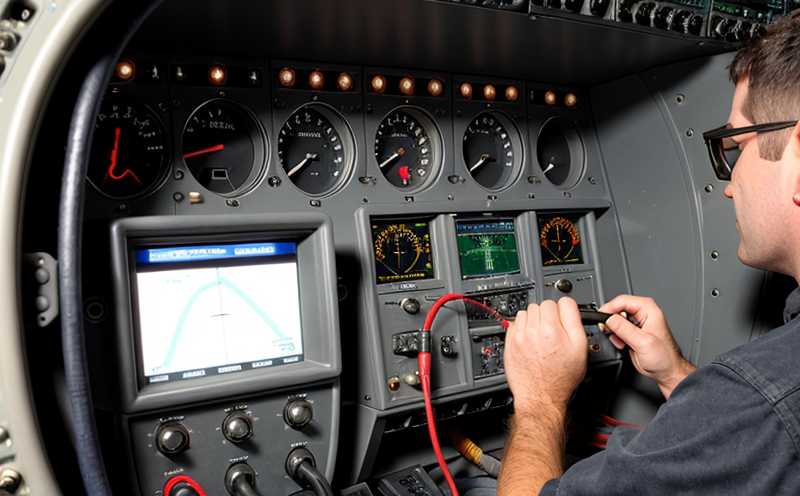FAA TSO-C196a GNSS Avionics Certification Testing
The FAA TSO-C196a is a critical standard governing the certification of avionics systems that incorporate Global Navigation Satellite System (GNSS) technology. This test ensures compliance with stringent technical requirements, thereby enhancing safety and reliability in aviation operations.
Our laboratory provides comprehensive testing services tailored to meet the exacting standards outlined by FAA TSO-C196a. Our expertise lies in ensuring that all systems undergo rigorous evaluation to ensure they are fit for use within the aviation industry. The test involves a series of steps aimed at verifying not only the basic functionality but also the robustness and reliability of avionics systems.
The testing process includes several key components:
- Initial system configuration and calibration
- Preliminary functional checks to ensure all subsystems are operational
- In-depth performance assessments, including accuracy, stability, and interference resilience
- Environmental stress testing to simulate real-world conditions such as temperature extremes, humidity, vibration, and electromagnetic interference (EMI)
- Validation of system interoperability with other avionics components
The results of these tests are meticulously documented and reported in accordance with FAA TSO-C196a guidelines. Compliance with this standard is essential for manufacturers seeking certification, and our laboratory ensures that all testing processes adhere to the latest standards.
Benefits
Compliance with FAA TSO-C196a provides numerous benefits beyond mere regulatory satisfaction. It enhances the reliability of avionics systems, which is crucial for safe and efficient operations in aviation. The rigorous testing ensures that all potential issues are identified early on, thereby minimizing the risk of failures during critical phases such as takeoff and landing.
Manufacturers who achieve compliance with FAA TSO-C196a gain a significant competitive advantage by demonstrating their commitment to quality and safety. This can lead to increased market confidence and potentially higher sales volumes. Additionally, achieving certification can open doors to new markets and opportunities for expansion.
The testing process also helps manufacturers identify areas for improvement in their design and manufacturing processes. By addressing these issues early on, they can reduce the likelihood of costly recalls and repairs post-market launch. This not only saves money but also enhances brand reputation and customer trust.
Environmental and Sustainability Contributions
The testing process for FAA TSO-C196a plays a crucial role in enhancing environmental sustainability within the aerospace industry. By ensuring that avionics systems are reliable, safe, and efficient, we contribute to reducing the overall carbon footprint of aviation operations.
Reliable avionics systems help optimize flight paths, reduce fuel consumption, and minimize emissions. This not only benefits the environment but also contributes to cost savings for airlines. Furthermore, by promoting the use of advanced technologies that meet stringent safety standards, we encourage innovation in sustainable aviation practices.
The testing process also helps identify potential areas for improvement in avionics design and manufacturing. By addressing these issues early on, manufacturers can reduce waste and energy consumption throughout the product lifecycle. This aligns with broader sustainability goals within the industry.
Use Cases and Application Examples
| Use Case | Description |
|---|---|
| GPS Receiver Testing | Testing GPS receivers to ensure accurate and reliable positioning data under various environmental conditions. |
| Inertial Navigation System (INS) Calibration | Calibrating INS systems for optimal performance in high-vibration environments. |
| Electro-Magnetic Compatibility (EMC) Testing | Evaluating avionics components to ensure they are not affected by and do not interfere with other electronic devices on board. |
| Temperature Extremes Simulation | Simulating temperature variations from -40°C to +70°C to assess the durability of avionics components. |
| Vibration Testing | Evaluating systems for their resilience against mechanical stress, which is crucial during flight. |
| Humidity and Condensation Testing | Ensuring avionics components function correctly in humid environments to prevent corrosion and degradation. |
| Interference Resilience Assessment | Evaluating the ability of avionics systems to operate effectively despite potential interference from other electronic devices on board. |





